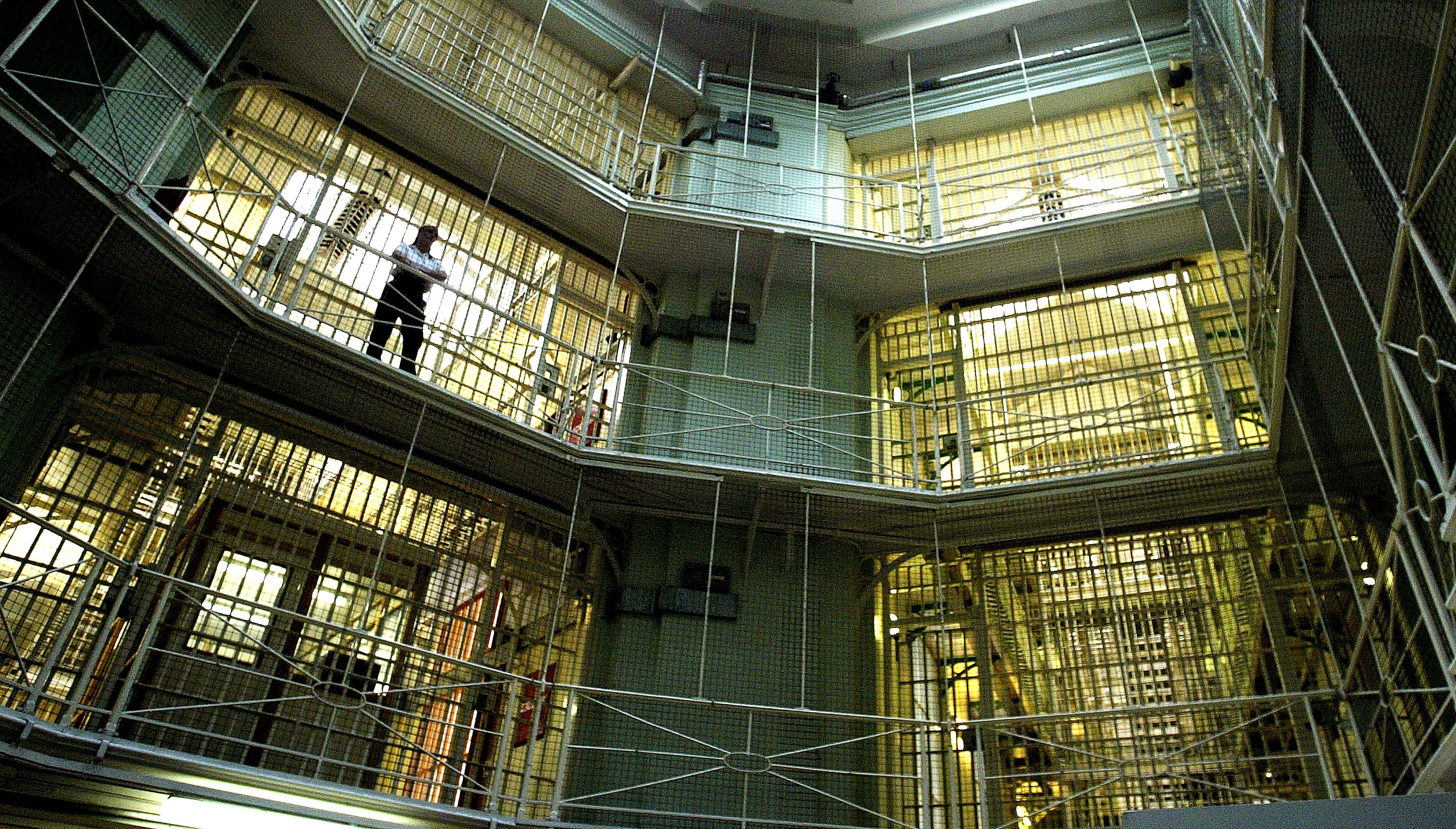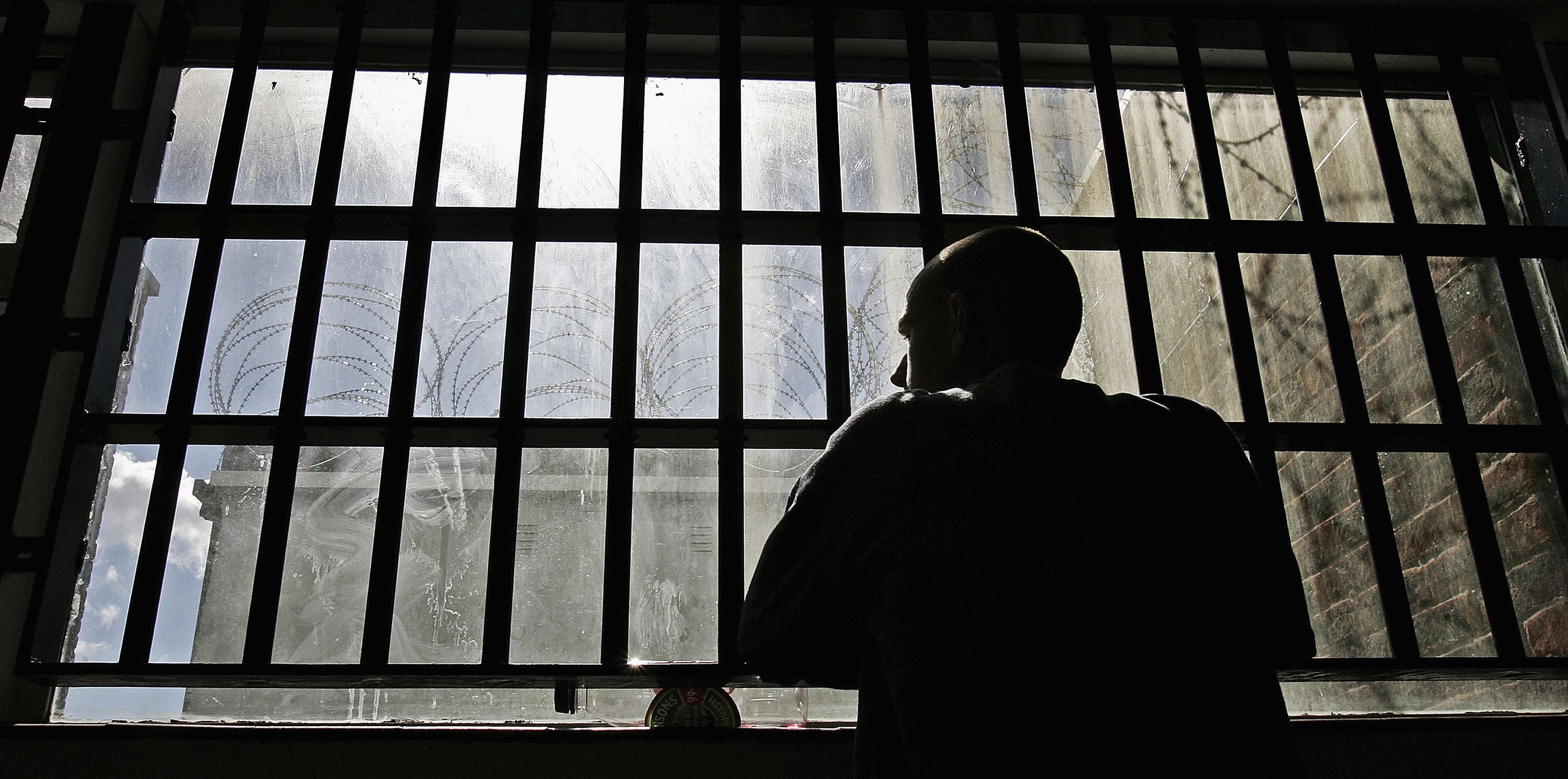Black prison staff face overt racism and slurs at work, probe finds
‘We live in a racist world, I believe, and prison reflects the outside world,’ one Black staff member said

Your support helps us to tell the story
From reproductive rights to climate change to Big Tech, The Independent is on the ground when the story is developing. Whether it's investigating the financials of Elon Musk's pro-Trump PAC or producing our latest documentary, 'The A Word', which shines a light on the American women fighting for reproductive rights, we know how important it is to parse out the facts from the messaging.
At such a critical moment in US history, we need reporters on the ground. Your donation allows us to keep sending journalists to speak to both sides of the story.
The Independent is trusted by Americans across the entire political spectrum. And unlike many other quality news outlets, we choose not to lock Americans out of our reporting and analysis with paywalls. We believe quality journalism should be available to everyone, paid for by those who can afford it.
Your support makes all the difference.Black prison staff are facing “entrenched” racism at work such as being called slurs by white colleagues and prisoners on the job, according to a damning new report.
Employees described feeling isolated from other staff, with some reporting being called the n-word, a probe by His Majesty’s Inspectorate of Prisons found.
Black prisoners and staff said racism was widespread and persistent; prisoners expressed concerns that they were less likely to be offered coveted jobs or education or enhanced regimes designed to incentivise good behaviour while serving time.
“We live in a racist world, I believe, and prison reflects the outside world,” one Black staff member told inspectors in the Thematic review: The experiences of adult black male prisoners and black prison staff report, published on Tuesday.
Experienced staff described being subject to overt racism from colleagues, such as being called “monkey” and being given National Front cards for Christmas. One Black prison employee, where nearly all staff were white, said that he was approached during a staff social event and called a “Black bastard”, while another officer was asked by a manager after the Brexit vote: “Where does that leave you?”
Many Black staff thought that Black officers were more likely to be overlooked for promotion, noting that decisions about promotion were mostly made by white staff who, they felt, were less inclined to promote a Black officer.
While most Black staff saw white colleagues as the main source of racism, a few had experienced it from white prisoners with one officer being called a “cotton-picking n-word”.
But the review found that most white prison staff did not recognise or accept the findings, saying that they went out of their way to treat all prisoners fairly and felt frustrated that this went unrecognised.

Responding to this report, Peter Dawson, director of the Prison Reform Trust, said the review was a “compelling description of how racial discrimination may have changed in character, but not gone away”.
“Anyone familiar with our prisons will recognise it as presenting a deeply truthful account. In doing so, it illuminates a structural failure to build the relationships between staff and prisoners on which an effective prison system depends,” he said.
“Thanks to the insight of both prisoners and staff, the report also describes very practical ways to bridge the gulfs in understanding that it describes.
“Those solutions utterly depend on being given the time and attention to implement them, and there are glimpses of good practice from which to learn. The benefits of doing so could be transformational.”
Echoing what inspectors were told by Black prisoners, Black staff said they were not confident to report discrimination by colleagues because of the potential repercussions and a lack of faith in the confidentiality of the process.
Some reported feeling being worn down by their experiences in the prison service, referring to deteriorating mental health.
Force was used against Black prisoners far more frequently than against other groups, HM Inspectorate found, while their risk category was sometimes assumed rather than known, especially in relation to gang membership.
The probe comes after the charity Inquest’s recently-released study found that the deaths of Black people in UK prisons are among the most violent and neglectful.
Jessica Pandian, policy and research officer at Inquest, said the incidents of racism detailed in the inspectorate’s report spoke to institutional racism embedded across the prison estate and criminal justice system.
“As our recent report shows, racial stereotyping, negligent mental and physical healthcare, bullying and victimisation, and the inappropriate use of segregation are systemic issues. The sharpest end of which are seen in the premature and preventable deaths of Black people in prison,” she said.
“The inspectorate’s report makes clear that Black people in prison are calling out for effective oversight and accountability on racism and discrimination. Yet Inquest have reported on how post-death investigations and inquests are consistently silent on issues of racism and discrimination.
“Imprisonment perpetuates harm and violence, with Black and marginalised people worst affected. Inquest believes the government’s strategy of prison expansion must be halted and resources redirected from the criminal justice system and into welfare, health, housing, education and social care to end this continued injustice.”
HM Inspectorate suggested that these problems could be tackled by taking a more “creative approach”, focused on building mutual trust and respect, including Black prisoners and white staff cooking and eating together because of its “deep cultural relevance and meaning” to some Black communities.
Other suggested solutions included “reverse mentoring” where prisoners provide insights into their lives during private discussions with staff, joint prisoner and staff forums, and joint training and education.
Chief Inspector of Prisons, Charlie Taylor, said: “Our report proposes a number of solutions developed in discussion with both Black prisoners and prison staff that focus on creating opportunities for respectful communication and the development of mutual understanding.

“These should not be seen as a replacement for existing processes to identify and tackle unacceptable behaviour. But we believe they have the potential to be transformative if the prison service is prepared to take them seriously.”




Join our commenting forum
Join thought-provoking conversations, follow other Independent readers and see their replies
Comments